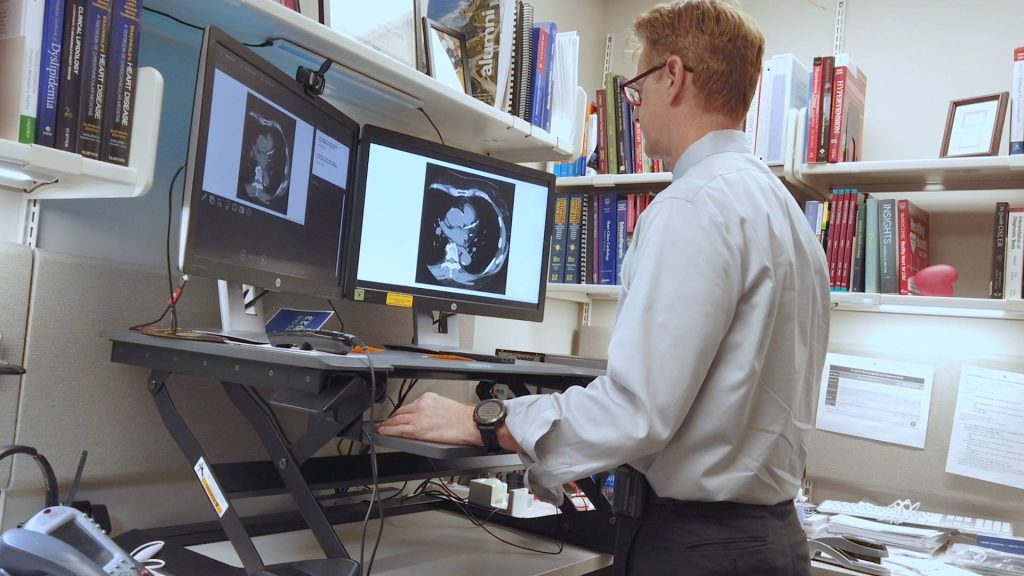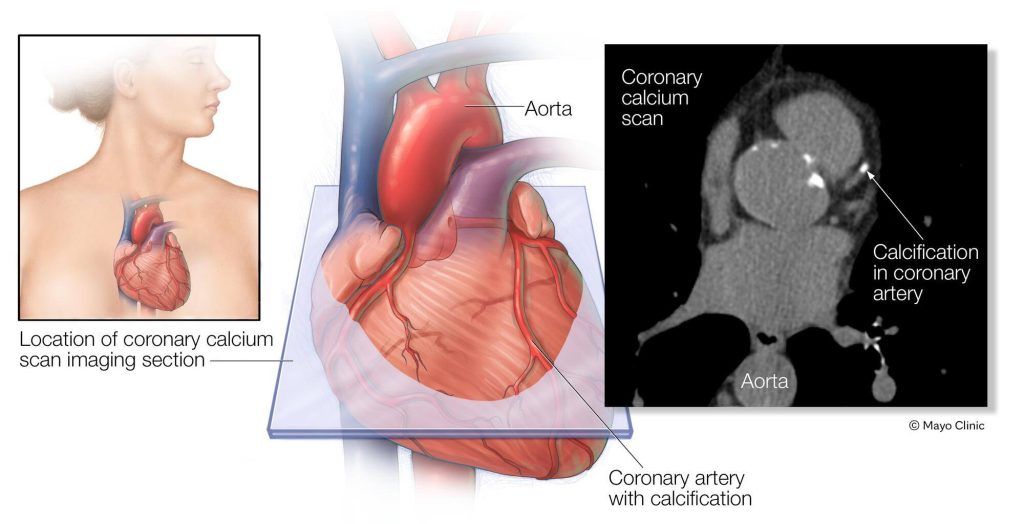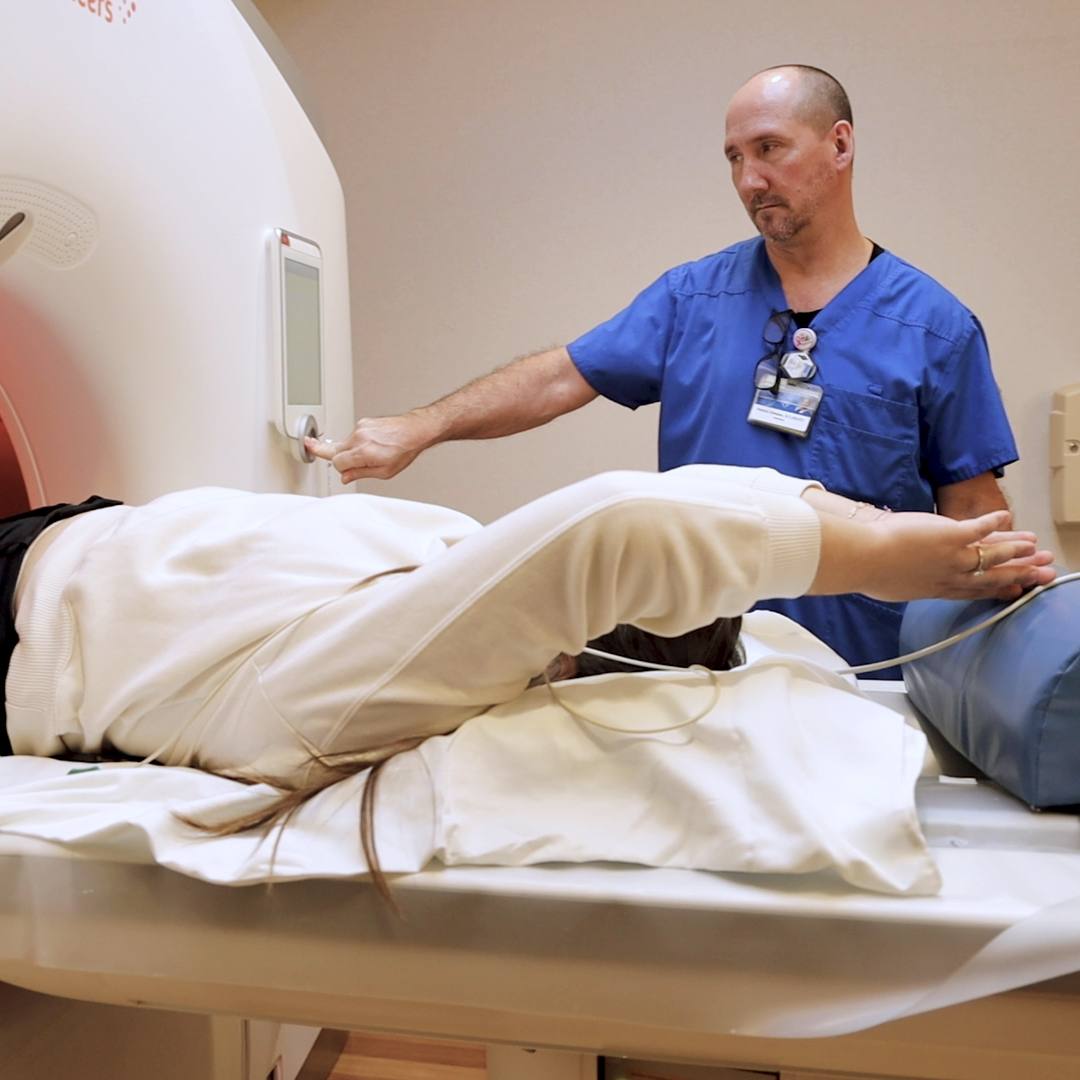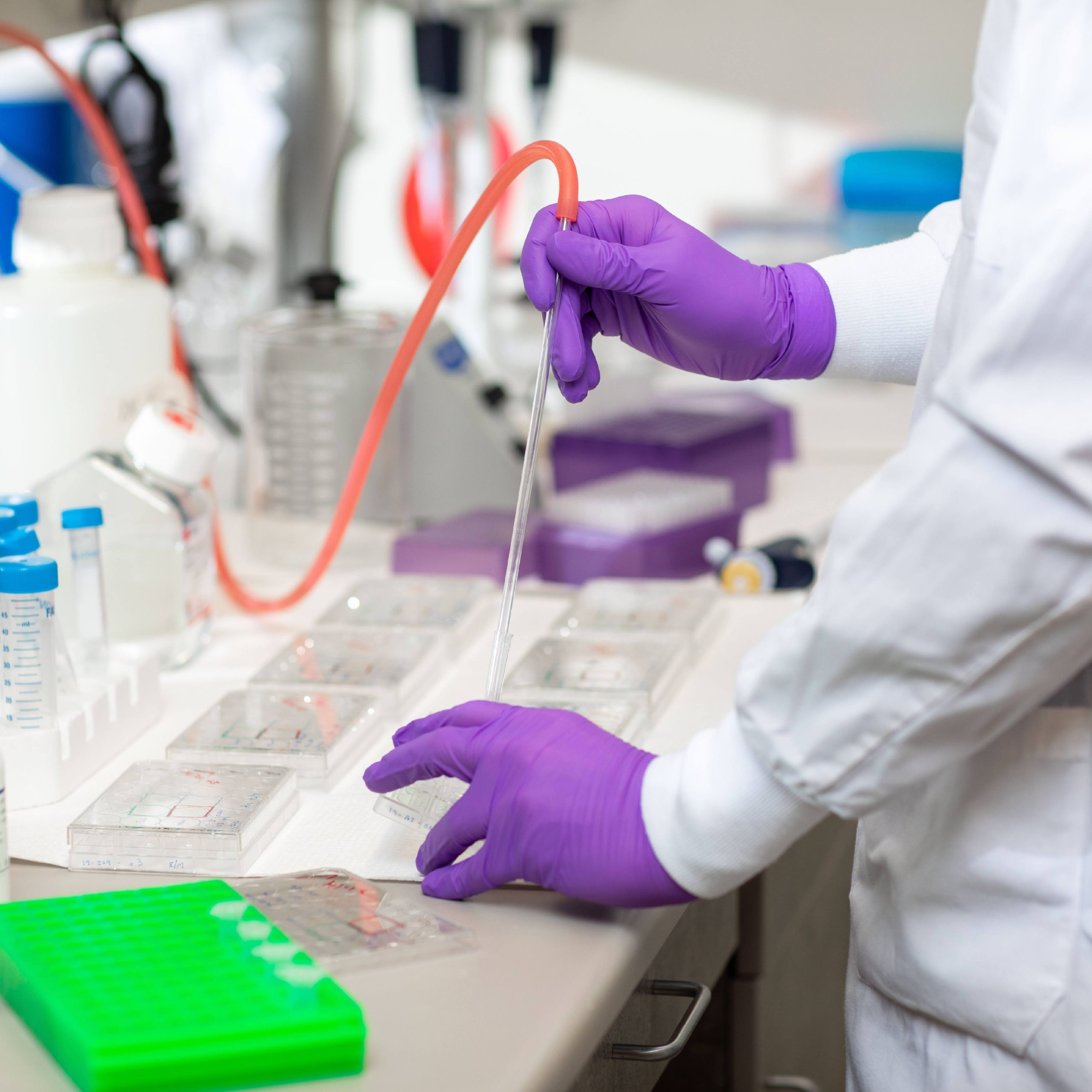Dr. Regis Fernandes, a Mayo Clinic cardiologist, says an easy and efficient test called a coronary calcium scan can help determine your risk before you show symptoms.
Watch: The Mayo Clinic Minute
Journalists: Broadcast-quality video (1:04) is in the downloads at the end of this post. Please courtesy: “Mayo Clinic News Network.” Read the script.
A coronary calcium scan is a CT scan of the heart. It’s a tool to help estimate risk more accurately.
“The objective is to measure the amount of calcifications in the arteries that feed your heart, the coronary arteries,” Dr. Fernandes says.
The scan, he says, can see if there is plaque that contains calcium.

“It’s not harmful. But the more calcium you have in there, the more plaque you have — and the more plaque, the higher the risk,” says Dr. Fernandes.
You can’t lower your score, but you can lower your risk by making lifestyle changes.
“But by lowering your cholesterol level through diet and medications, etc., the cholesterol gets removed, the plaque stabilizes,” says Dr. Fernandes.
And the scan can help determine if medications are right for you.
“A calcium score is a risk assessment tool. That’s the key is to help people to decide if they go on a medication or not, and how much of it and what’s the more accurate way to measure that risk,” Dr. Fernandes.

Dr. Fernandes says new technology enables calculating coronary calcium scores from scans used for other purposes, such as cancer screening.
Talk with your healthcare team to find out if you’re a candidate for a coronary calcium scan.
Related posts:
- Mayo Clinic Minute: Who benefits from taking statins?
- Mayo Clinic Minute: Are you getting enough sleep for your best heart health?
- Mayo Clinic Minute: Tips for healthy heart from a Mayo Clinic cardiologist



